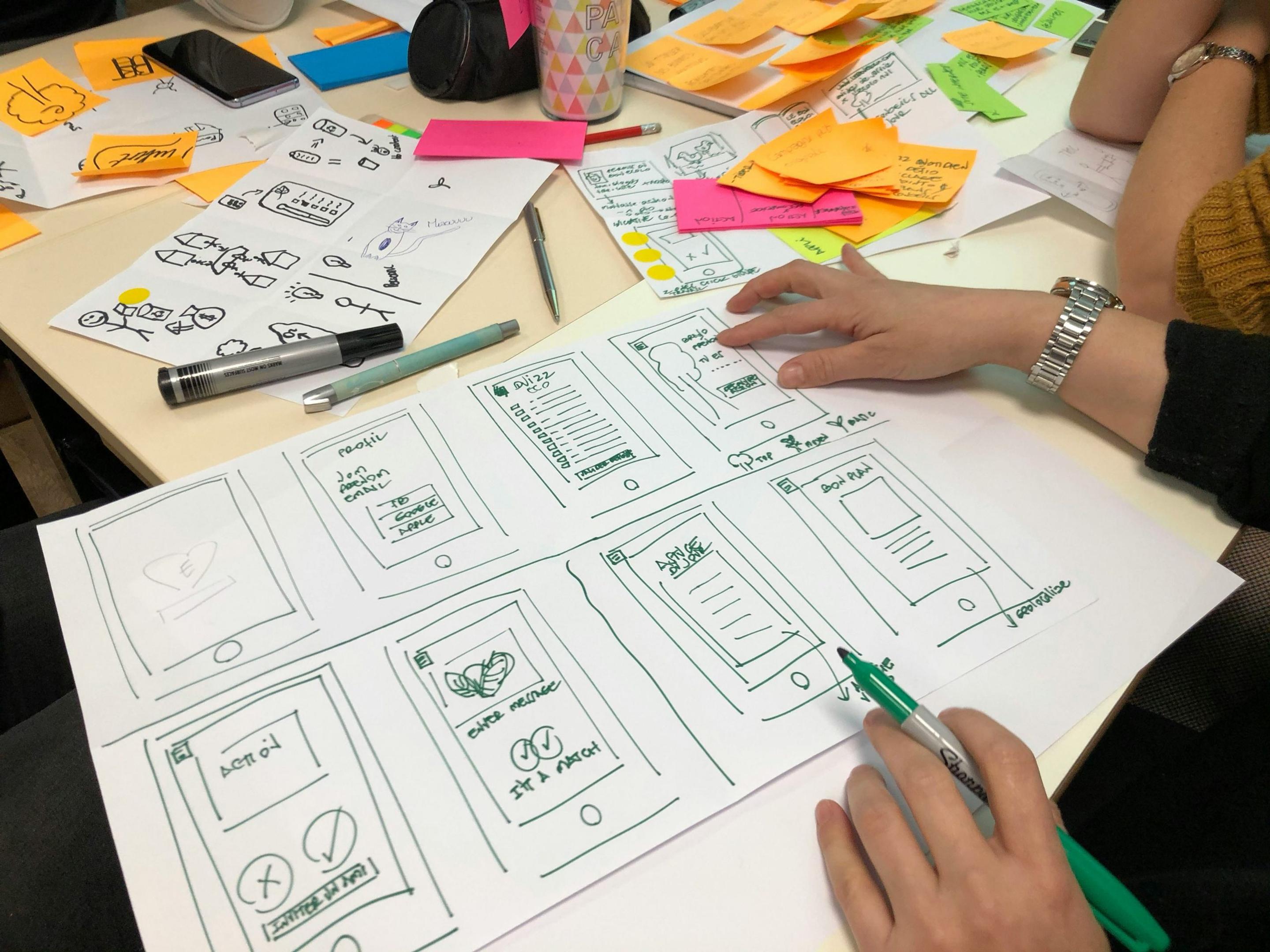4 Common Hybrid App Development Challenges

Hybrid app development is rapidly becoming the most popular app development methodology, and for good reason: hybrid offers a host of significant benefits compared to native app development, not least of which is a potential 30% reduction in costs.
However, that’s not to say hybrid app development doesn’t have its own challenges. In order to enjoy the benefits of hybrid app development, developers need to be able to recognise the pitfalls of this methodology and know how to overcome them.
In this article, we’ll look at some of these pitfalls and share tips on how to avoid or overcome them. We’ll also help you get a better understanding of what hybrid app development is, and the advantages it has over native app development.
What is hybrid app development?
Whereas native app development means building apps for a specific platform, hybrid app development means creating an app that’s usable on multiple platforms. The most common example would be building a mobile app that’s usable on both Android and iOS phones.
The key benefit of hybrid development is how it streamlines the entire app-building process by reducing the work involved. Instead of having to write the code for your app multiple times in multiple programming languages (as you would with native app development), hybrid allows you to write the code once and then deploy it across a number of different platforms.
We asked our Head of Mobile, Douglas Hoskins, to describe the benefits of hybrid app development below:
“With native app development, you need multiple teams working in different languages. But with hybrid, it’s a smaller team, all fixing bugs and making improvements to a single codebase. There are fewer conversations you need to have, fewer people to align in order to get things where they need to be, and less code overall. Less code means less time spent maintaining and debugging it going forward.”
But these advantages don’t mean there aren’t also disadvantages to the hybrid approach. We’ve detailed some challenges you might encounter (and how to overcome them) below.
4 Common Hybrid App Development Challenges
1. Tailoring your app to users’ devices
Hybrid development tools like Kotlin Multiplatform allow you to build a universal codebase for multiple platforms, but doing so means you might lose out on functions specific to each device. As such, one of the common challenges of hybrid app development is making sure an app feels functional and fit for its specific purpose, even though it won’t be able to access some platform-specific features.
The key to overcoming this issue lies in the design of your app, rather than its functionality. Refocusing on assets like using brand colours, logos, and animations helps make the app feel functional and appealing, even if it lacks device-specific functions. As long as you combine impactful branding with comprehensive debugging (to ensure smooth performance), users will be happy regardless of the platform they use.
2. Debugging and testing
While debugging and testing are crucial for high performance, they can present a challenge for hybrid apps, as native integrations are unavoidable even when using hybrid app development. As such, debugging may become complicated as these native integrations need to be tested separately from the overall hybrid code.
Communication and thoroughness are key if you want to avoid this pitfall. Your entire team should be aware of exactly what needs to be done — specifically, what the native integrations are and what problems specific to that platform they might encounter.
3. Building a secure platform for users
Security is a huge factor during the development of any app, but it is likely to be much more of a priority in hybrid app development, as the different platforms you’re building for will each have different vulnerabilities and security systems. However, in some ways, making your app secure is actually easier in hybrid app development.
To ensure your app (and any sensitive data your users store on the app) stays secure, it’s important to remember what can be done at the hybrid level (i.e. what you can change once that will affect all versions of the app) and what will need to be checked on each specific platform. For instance, certificate pinning and database encryption can be done at the hybrid level, but jailbreak detection must be done natively.
4. Innovating without support
Hybrid app development, by its nature, means building apps without support from the corporations that built the platforms your app will exist on. This can lead to issues, as Future Platforms Head of Mobile Douglas Hoskins explains:
“If you're doing fully native app development, you’ll generally use a set of tools provided by Apple or Google, so you can count on the quality of those tools and a certain level of support and documentation being available.
On hybrid platforms, you’re going off the beaten track a bit in terms of the ‘recommended approach’, even if you’re using established tools like Kotlin Multiplatform or Flutter. The key thing to avoid in that off-piste environment would be moving even further away from the recommended development practices within that framework. The further you go the less support you’ll find, and the harder it’ll be to build a team for your project as well.
For example, if you stick to a well-reviewed GitHub library or the recommended Flutter blueprint for your app, your developers will feel right at home and there’s a community that you can reach out to for help.”
Work with hybrid app development experts
However, Douglas’ point isn’t to say that innovation is impossible during hybrid app development. For example, during Future Platforms’ work with Virgin Active, we built a digital experience that helped redefine the relationship that Virgin Active has with its members in a post-pandemic world. Our team successfully leveraged Kotlin Multiplatform beyond how it has previously been used and broke new ground with the way in which we share ViewModels.
You can learn more about Future Platforms’ successes in hybrid app development here





